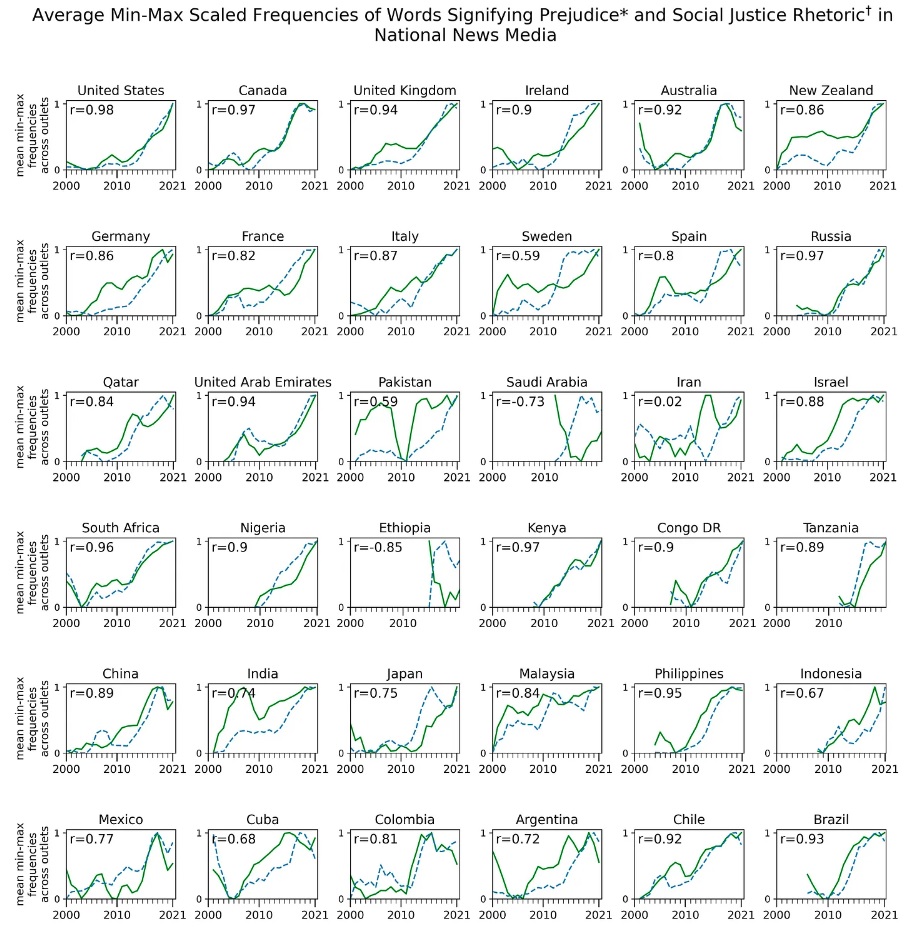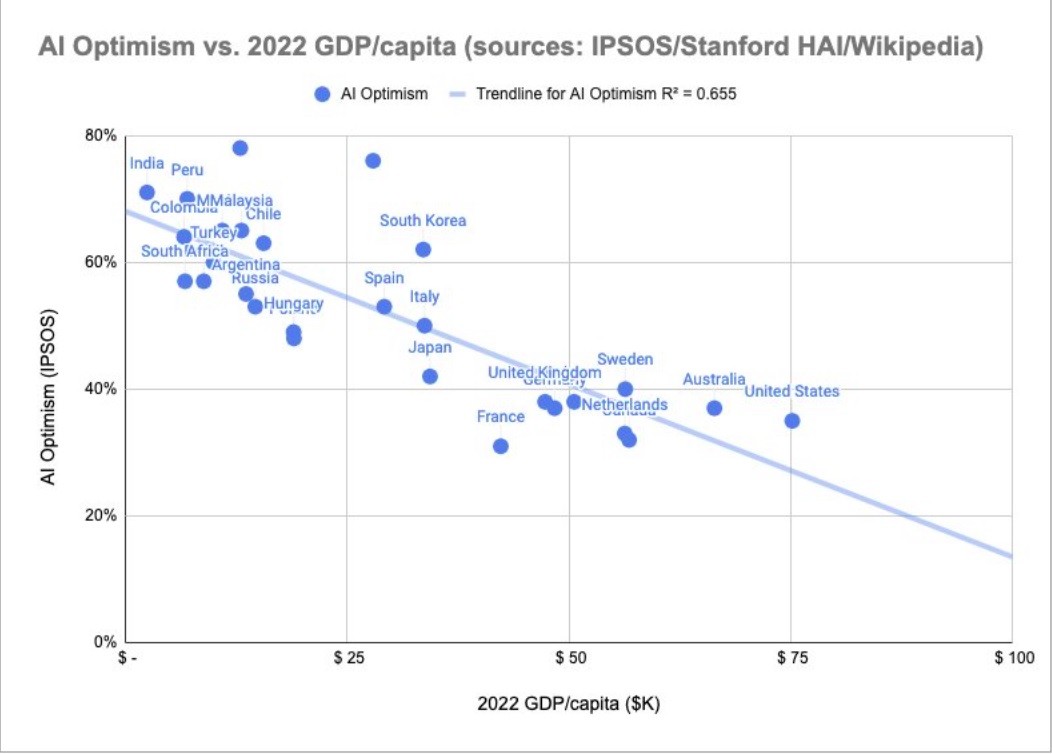We recently came up with an idea for a movie, the working title of which is Tumbling Dice. Recent readers are likely unaware that we have written screenplays in our past—you of course remember the short film we made with the estimable Mike Williams, Please Hold, that was in the Oakland Film Festival. We are unsure when we’ll carve out the time to write Tumbling Dice given work and other writing project constraints but we did start listening to songs about gambling on Spotify so there’s that. We also wonder how long it will be until we can make our own movie without the limiting factors of sets, actors and a host of difficult logistics.
One of our big lessons from Please Hold is how hard it is to make a movie and we would have been completely unable to without Mike’s expertise. But among the progress in AI is movie-making software. These platforms allow you to type in your video idea and it will create a video using avatars, i.e. virtual actors. These AI platforms don’t appear to be completely ready for primetime, er, uh, Netflix, um, I mean HBO or uh Max, but how many years (months?) until they are? We predict someone more talented and ambitious than us will use AI to make a narrative movie that will meet commercial success sooner than you and we expect.
In the meantime, as we yell “action” we describe how the world woke up before the U.S., explain how views of AI are biased by economic standing, and present a special China Corner with French characteristics. It’s this week’s International Need to Know, the Martin Scorsese of international information, the Quentin Tarantino of international data (but a lot less violent).
Today is the first day of French Quarter Festival which reminds us of one of our eight favorite photos—taken at FQF maybe seven years ago. Who is the mysterious man on the balcony in the white suit? A whole movie could be made about him.
FYI International Need to Know is now also available on our Substack.
Without further ado, here’s what you need to know.
The World Woke Together
The word “woke” was once easy going, lounging around in the lexicography with its simple definition and uses, perhaps a bloody mary or mimosa in hand. Nowadays it’s like an addict on a year-long bender and innocent bystanders couldn’t define what it means to save their lives. Most of us probably think of “woke” as a U.S. phenomenon. But recent data analysis by David Rozado shows that not only is it global but the phenomenon took off in other countries before the U.S. Rozado examined the use of words to denounce prejudice such as “racism,” “sexism” and “homophobia” and found a marked increase of the use of them in the media around 2010. But U.S. media, Rozado asserts, was not a pioneer in using such words more frequently. The pioneers were actually Sweden, Canada and Australia with the U.S. fairly soon following and then many countries’ media using these words far more frequently. But we Americans like to think everything is about us so we think “woke” is American born and bred. Interestingly there is a difference in emphasis in different countries’ media. Some countries emphasize gender inequality more, and others ethnic inequality. Denunciation of homophobia is most common in “Western countries and Latin America.” Of course, in certain countries the use of terms to denounce discrimination did not increase. Where? China, Russia and Iran, for example. In fact, Rozado’s analysis finds that instead of denouncing discrimination in their own countries, rather for the Chinese, Russian and Iranian media “they are used to criticize (or mock, in the case of some Russian state-controlled media) alleged prejudice in the West.” Undoubtedly some aspects of “wokism” are silly and go too far, but we guess those most virulently against wokism have more in common with Xi, Putin and the Iranian theocracy than with Jefferson, Adams and Madison.
David Rozado Chart
Rich Robot, Poor Robot
Nearly every day we see astonishing innovations and results using the new AI tools, whether in medicine, chemistry or artistic creativity. If you don’t think AI is going to revolutionize our way of life you’re just not paying attention. Along with the breakthroughs, we read about and listen to much pessimism about what this technology will mean for our world. But it turns out a person’s view of AI is colored by how well they are doing as pointed out by Christopher Nguyen using data from the Stanford Institute for Human-Centered AI (CYLON should be its acronym). CYLON’s study finds that the poorer your country, the more optimistic your population is about AI and the richer you are the more pessimistic your population is. That makes sense when you think about it. We’re fat, drunk and happy in wealthy countries and don’t want anything disrupting our lives even if it might make us even fatter, drunker and happier. But if you are living in a developing economy you are far more open to change (and also likely to have somewhat younger demographics and young people are more open to change). The U.S. is the leader right now in developing the foundational tools for AI but we bet the applications are developed by and affect developing countries as much or more.
Christopher Nguyen Chart
China Corner With French Characteristics
A number of people have asked us about French President Emmanuel Macron’s trip to China and his interview about the trip. We even responded hastily to an email string about it. Having read the interview and the “result” of the trip, it’s worth making a few points here. First, France has always been especially France-centric in its foreign policy going back to De Gaulle. Second, as anyone who has read our book knows, we advocate building alliances to deal with a more expansionist, authoritarian China. Macron saying what he did when he did where he did was not helpful to building such alliances. But third, we don’t disagree with Macron that the European Union should “build strategic autonomy.” The U.S., Japan, E.U. and others can build alliances where it makes sense in dealing with China even as they have their own foreign policies with differing emphases. On the Taiwan question that Macron answered in his interview, many people interpreted it as Macron not caring about a democratic Taiwan. He may not but his answer was more nuanced than that. Specifically he says, “If the tensions between the two superpowers heat up, we will not have the time or the means to finance our strategic autonomy and will become vassals, whereas we could become a third superpower if we have a few years to build it.” In other words, he hopes to stall for time until the EU has built up its strategic capabilities. Or as Deng Xiaoping said, “bide your time.” We are dubious that either E.U. or U.S. words will change China’s timeline on Taiwan, whatever that timeline is. At any rate, Macron is right that Europe should work to achieve strategic autonomy. But what he doesn’t say is if Europe achieves this than France will have less autonomy. And countries such as Poland and others have a very different view of how to deal with China than France does. Achieving E.U. strategic autonomy will likely mean France has less room to curry favor with China for a variety of business favors.* We might, if we find time, write more extensively about all of this in a Substack. Stay tuned.
*Read Finbarr Bermingham’s whole Twitter thread but Macron’s trip garnered a variety of agreements to help French businesses, including sales of Airbus planes**, French companies gaining access to Chinese wind projects, agriculture sales and biofuel partnerships. France has always placed such deals above other foreign policy concerns
**What does France’s approach and the current U.S. “Buy American” approach mean for Boeing?***
***Is it legal to footnote a footnote?




